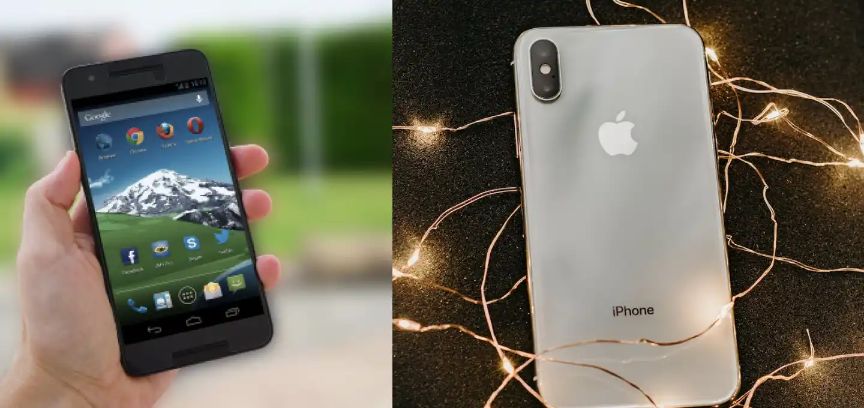iOS vs. Android: A Comprehensive Comparison for iPhone Buyers
5 min read
17 Mar 2024
Choosing a smartphone is a significant decision, and for many, it comes down to the battle of the titans: iOS vs. Android. As an iPhone buyer, understanding the differences between these two operating systems is crucial. In this comprehensive comparison, we'll explore various aspects of iOS and Android to help you make an informed choice.
1. User Interface and Design:
iOS: Known for its sleek and consistent design, iOS offers a user-friendly interface with intuitive navigation. Apple's strict control over hardware and software ensures a seamless user experience.

Android: Android provides a more customizable experience. Different manufacturers offer unique user interfaces (UI), such as Samsung's One UI and Google's stock Android. This variety caters to diverse preferences but may lack the uniformity of iOS.
2. App Ecosystem:
iOS: The Apple App Store boasts a vast selection of high-quality apps, often receiving new releases first. Apple's strict app review process helps maintain a secure and stable environment.
Android: Google Play Store offers a wide range of apps, but due to its open nature, it may have a higher number of low-quality or potentially harmful apps. However, Android users benefit from the ability to sideload apps from other sources.
3. Hardware Integration:
iOS: Apple controls both the hardware and software, resulting in seamless integration. iPhones are known for their optimization, which ensures apps run smoothly and efficiently.
Android: Android runs on a variety of devices from different manufacturers, leading to varying degrees of optimization. While flagship Android phones can be powerful, some budget models may not offer the same level of performance.
4. Updates and Support:
iOS: Apple consistently provides software updates for older devices, often for several years. This ensures security patches and new features are accessible to a wide range of users.
Android: Android updates can be delayed or inconsistent due to the fragmentation of the ecosystem. Flagship devices receive updates promptly, but support for older or budget phones may vary.
5. Customization:
iOS: While iOS offers some customization options like changing wallpapers and arranging apps, it's limited compared to Android. Apple prioritizes simplicity and consistency.
Android: Android is highly customizable, allowing users to change home screen layouts, use widgets, and even replace default apps with third-party alternatives. It caters to users who want more control over their device's appearance and behavior.
6. Voice Assistants:
iOS: Siri is Apple's voice assistant, known for its integration with the iOS ecosystem. While it's capable of performing various tasks, some users find it less advanced compared to competitors.
Android: Google Assistant is a powerful voice assistant deeply integrated into the Android experience. It offers excellent voice recognition and can interact with a wide range of apps and services.
7. Privacy and Security:
iOS: Apple prioritizes user privacy and has implemented features like App Tracking Transparency and on-device processing of Siri requests. iPhones are often considered more secure against malware.
Android: Android's open nature makes it more susceptible to security threats. However, Google has improved security over the years, and newer Android versions include privacy-focused features.
8. Ecosystem Lock-In:
iOS: Apple's ecosystem is highly integrated, which can be advantageous if you use other Apple devices like a Mac, iPad, or Apple Watch. However, it may limit your choices if you prefer non-Apple products.
Android: Android offers more flexibility, allowing you to mix and match devices from various manufacturers. This can be appealing if you want to choose the best device for each category.
9. Price Range:
iOS: iPhones tend to be premium-priced devices, which can make them less accessible to budget-conscious consumers. However, Apple occasionally releases more affordable models like the iPhone SE.
Android: The Android market caters to a wider price range, with budget, mid-range, and flagship options. You can find Android devices to suit various budgets and preferences.
10. Accessories and Ecosystem:
iOS: Apple has a thriving ecosystem of accessories, including cases, headphones, and smartwatches, designed to work seamlessly with iPhones.
Android: While Android accessories are widely available, the ecosystem may be more fragmented due to the diversity of manufacturers and models.
Conclusion: The Choice Is Yours
The iOS vs. Android debate ultimately comes down to your personal preferences and priorities. iOS offers a consistent and user-friendly experience, excellent app quality, and strong privacy features. On the other hand, Android provides more customization options, a wider range of device choices, and integration with Google services.
Consider your specific needs, budget, and the devices you already own when making your decision. Both iOS and Android have their strengths and weaknesses, so choose the one that aligns best with your lifestyle and preferences. Whether you opt for an iPhone or an Android device, you'll have access to a powerful and capable smartphone that can meet your digital needs.
More Articles

Beyond 'Knight and Day': A Weekend Binge of Tom Cruise Films Showcasing Iconic Versatility
4 min read | 21 Jan 2024

James Cameron Debunks OceanGate Film Rumors: A Look Behind the Speculations
2 min read | 20 Jan 2024

Selena Gomez's Resilience Shines Through: Navigating Challenges and Inspiring Authenticity
5 min read | 19 Jan 2024
